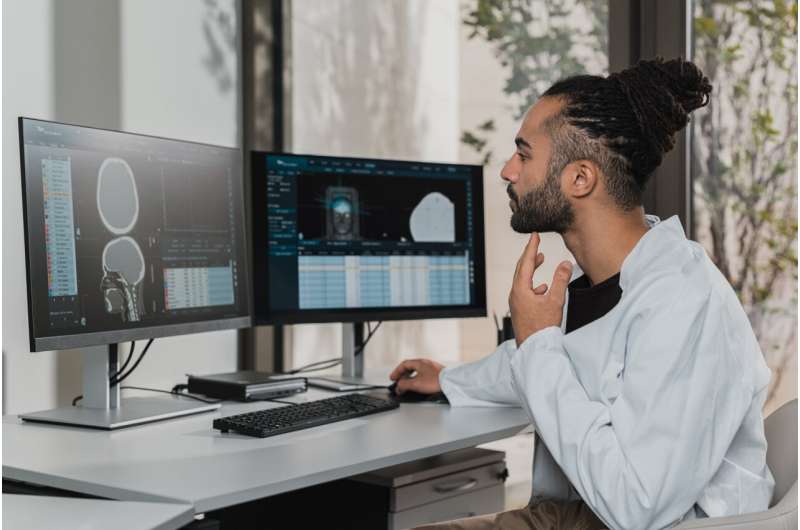This article has been reviewed according to Science X's editorial process and policies. Editors have highlighted the following attributes while ensuring the content's credibility:
fact-checked
trusted source
proofread
Brain research critical for Texas economy, says new report

Texas needs to establish a state research institute to tackle a growing brain health crisis—which will contribute to healthier and more productive communities, according to a new report from Rice University's Baker Institute for Public Policy.
Brain diseases have profound impacts on public health, according to author Harris Eyre, fellow in brain health at the Baker Institute's Center for Health and Biosciences. These diseases can cause tremendous pain and suffering for individuals of all ages and their families—but moreover, the impacts are wide-ranging and cumulatively impact communities and the economy, he said.
"The brain drives all that we do, think, create, overcome, solve and feel," Eyre wrote. "A healthy brain is essential for developing good habits, elevating well-being, enhancing social connection, increasing years of productivity and expanding creativity—all of which help us to deal with life's challenges. The brain is our most vital organ, yet most of us do not give our brain a second thought unless it is injured, diseased or declining."
Focusing on and funding brain research would help the state to better understand the science of early learning, combat the mental health crisis, prevent Alzheimer's disease and boost workforce productivity by emphasizing peak brain performance, according to the report.
Texas should direct concerted resources toward preventive, predictive and restorative brain research in order to identify strategies, tools and treatments for improving brain health and wellness among all Texans, he argued. Innovations such as advanced brain imaging and genetic analyses offer new opportunities to understand and tackle some of the most pressing brain challenges using holistic and durable approaches to the prevention, diagnosis and treatment of neurologic conditions, Eyre explained.
"With access to better brain health services, veterans, service members and first responders could build stronger, faster and more agile neural networks to calmly meet the constantly changing demands of their work," he wrote. "People struggling with Alzheimer's disease could increase their well-being to find life still worth living. Babies with autism could be diagnosed within their first year, dramatically improving their life trajectory."
The potential rewards and sources of economic growth that would stem from a state-funded brain research institute—including increased sales, local, state and federal tax revenues—are significant, Eyre argued. This could range from health-focused life sciences companies and top scientific talent being drawn to the state to improving preventative care that ultimately lowers overall health care expenses. A similar Texas cancer research funding initiative (CPRIT or Cancer Prevention and Research Institute of Texas) has yielded a 2.5- to four-times return on investment, according to the report.
"Texas leads the country and much of the world in creating economic growth that fuels quality of life," Eyre said. "This brain funding is an opportunity to be on the forefront of the brain science revolution that we cannot afford to lose."



















